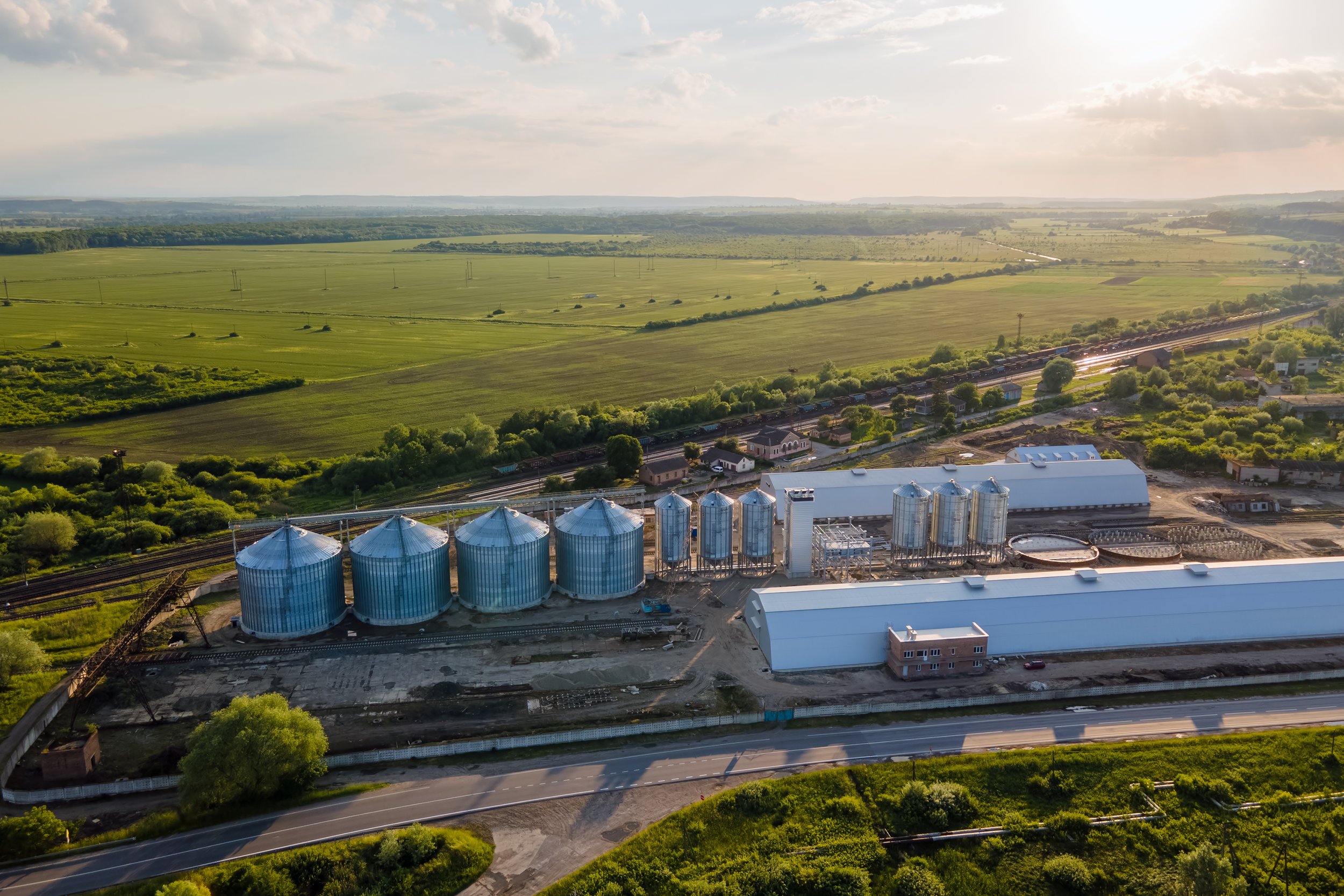
MCB Insights
The Future of Energy Industry:
The Potential of Biofuel Market and Microalgae Technology Solution
According to the Oil–Statistical Review of World Energy 2021, there are only approximately 53 years' worth of oil reserves left at the current rate of consumption
In brief
Global biofuel market will surge from $167.4 billion in 2023 to $225.9 billion by 2028, with an anticipated compound annual growth rate (CAGR) of 6.2% throughout the forecast period.
The mandate is set to commence in 2025, requiring a minimum volume of SAF at 2%, with subsequent increases every five years, aiming to reach a minimum volume of 63% by 2050
The shortage of bio-oil worldwide presents a significant challenge in meeting the increasing demand for biofuels. Especially when soybean oil production, primary sources of bio-oil for biofuel production, struggles to keep pace with this demand.
The demand for ESG investments is rapidly increasing as investors seek projects that integrate sustainability with financial stability, driven by stricter regulations, a focus on climate resilience, biodiversity preservation, and the need for transparency to combat greenwashing.
n recent years, the biofuel market has seen notable expansion due to mounting worries regarding climate change, energy stability, and the demand for eco-friendly alternatives to traditional fuels. Projections indicate that the global biofuel market will surge from $167.4 billion in 2023 to $225.9 billion by 2028, with an anticipated compound annual growth rate (CAGR) of 6.2% throughout the forecast period.
I
The European Union (EU) and the United States have implemented policy measures to promote the production of sustainable aviation fuel (SAF). In October 2021, global airlines committed to achieving net zero carbon emissions by 2050, recognizing the necessity of significant quantities of SAF to decarbonize the aviation industry. There is growing emphasis on the role of policy in facilitating this energy transition. The mandate is set to commence in 2025, requiring a minimum volume of SAF at 2%, with subsequent increases every five years, aiming to reach a minimum volume of 63% by 2050, including 28% derived from synthetic aviation fuels.
>> Biofuel Market Dynamics
The condition of ensuring energy security
Increasing concerns about energy security and the imperative to reduce greenhouse gas emissions are significant factors driving the expansion of the biofuel market. Renewable fuel sources offer a solution to these challenges while also presenting a promising, cost-effective alternative to costly fossil fuels. The domestic production of biofuels from renewable sources has the potential to decrease dependence on imported oil and enhance overall energy security.
Increasing desire for more environmentally friendly fuels and supportive governmental regulations
Another significant factor contributing to this growth is the favorable regulatory landscape in many countries, which encourages the adoption of biofuels as a means to decrease greenhouse gas emissions. Additionally, the enforcement of rigorous environmental regulations in numerous nations has spurred demand for cleaner and more efficient energy sources, thereby stimulating the global expansion of the biofuel market.
The United States implemented the Renewable Fuel Standard (RFS) program in 2006 in accordance with the Energy Policy Act of 2005 (EPAct).
This program serves as a significant federal policy in the US, promoting the production of renewable fuels with low greenhouse gas (GHG) emissions. These fuels play a crucial role in tackling climate change within transportation policies. Similarly, countries like Germany, the UK, and Brazil have also established regulations requiring the use of biofuels in the transportation sector, which contributes to over 18% of CO2 emissions. Many nations are increasing the proportion of biodiesel in fuel blends as part of these regulations.
EU 7%, US 2~10%, Canada 2~4%, Brazil 10%, India 20%, and Thailand 7% (2019)
EU 10 %, Korea 3.5% (2021)

>> Challenges of the BioFuel Industry
Demand of high initial capital investment
The burden of constructing and running a biofuels plant or biorefinery is substantial, posing a challenge for biofuels to rival fossil fuels. The investment encompasses expenses such as biorefinery installation, procurement, testing, maintenance, and feedstock costs. Biofuel production demands significant capital due to its reliance on state-of-the-art technologies, often lacking prior experience or sufficient historical data. Moreover, energy-intensive processes necessitate specialized energy production systems for heat or electricity co-generation. These are just a few factors contributing to the high cost and unattractiveness of investing in biofuels.
>> Soybean oil production not enough for biofuel demand
The shortage of bio-oil worldwide presents a significant challenge in meeting the increasing demand for biofuels, particularly as soybean oil production struggles to keep pace with this demand. Soybean oil is one of the primary sources of bio-oil for biofuel production. However, the production of soybean oil faces several challenges such as limited arable land, fluctuating weather conditions, and competition with other agricultural crops. Additionally, concerns have been raised about the environmental impact of large-scale soybean cultivation, including deforestation and biodiversity loss.
>> RE100 (Renewable Electricity 100%)
The world’s most influential companies committed to 100% renewable power plant
Expansion of RE100 :
6% countervailing duty imposed in 2026
12% countervailing duty imposed by 2030

>> Microalgae - new opportunities for biofuel investors
Unlocking the Future of Biofuels: The Microalgae Advantage
Microalgae, among the oldest life forms on Earth, encompass a diverse group of organisms that thrive in aquatic environments. Ranging from single-celled to multi-celled forms, these microscopic vegetable plankton play a pivotal role as the foundation of the aquatic food chain. Their reproduction, powered by sunlight, carbon dioxide, and trace nutrients, fuels their rapid growth and prolific presence in various water bodies, from ponds to oceans.
Large and successful organism living in water such as pond, lake and sea
Natural growth in any water
Base of food chain in aquatic life
High level of oil content up to 50%
Rich in protein, mineral, vitamin
Rapid growth comparing to any other oil seed
Faster & big consumption of CO2
Oil Production Per Hectare
86 tons
by Micro Algae
5 tons
by Palm
1 ton
by Rapeseed
0.4ton
by Soybean
Remarkably efficient at oil production, microalgae exponentally outperform traditional crops. Their rapid growth rates surpass those of conventional oilseed crops, making them a promising avenue for sustainable biofuel production. Moreover, microalgae's voracious consumption of carbon dioxide further underscores their potential as allies in combating climate change. Additionally, they exhibit exceptional capabilities in wastewater treatment, serving as natural purifiers of aquatic ecosystems. However, although major global companies such as ExxonMobil, BP, and Reliance have made considerable research and efforts for the commercialization of microalgae biofuel, economical mass production of microalgae biofuel has not been possible due to the lack of high-density cultivation and harvesting technology for microalgae biofuel
DePower
How MCB take initiative
The potential of biofuel market will definitely shape the future of green energy and become a great opportunity for investment capitals that have huge internal power and influence globally. MCB Venture carries a commitment to sustainable development and technological innovation. Our initiatives cover a broad spectrum, including but not limited to, sustainable energy projects, advanced agricultural practices, and the development of smart, eco-friendly infrastructures.
A groundbreaking "R.E method," leveraging a unique "honeycomb" architecture, has revolutionized microalgae cultivation and harvesting, enabling mass production with significant economic benefits. This advanced technology facilitates commercial-scale production through a fundamentally different approach to cultivating and collecting microalgae. Discover the remarkable advantages of microalgae and explore the exclusive technology that's setting new standards in biofuel production.





